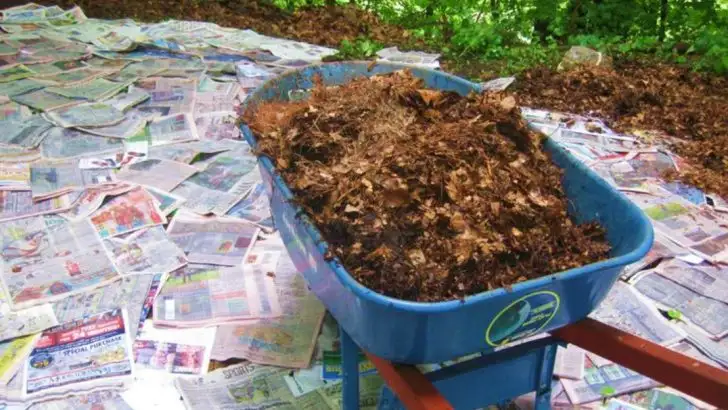Tired of the endless battle with weeds? You’re not alone. Pulling them one by one can feel like a full-time job—and they always seem to grow back faster than you can get rid of them. But what if you could stop weeds before they even start, without spending hours hunched over in the garden?
Here’s the good news: you can.
There are smarter, low-effort ways to keep weeds under control that don’t involve constant digging or chemical sprays. Whether you’re working with a raised bed, flower border, vegetable patch, or even a few containers, these strategies are simple, effective, and often use things you already have at home.
From clever mulching methods to ground covers that do the work for you, these 16 tried-and-true tricks can help you reclaim your time—and your garden—without ever reaching for the weeder.
Weeds hate these techniques. Your back will love them.
Mulch Magic
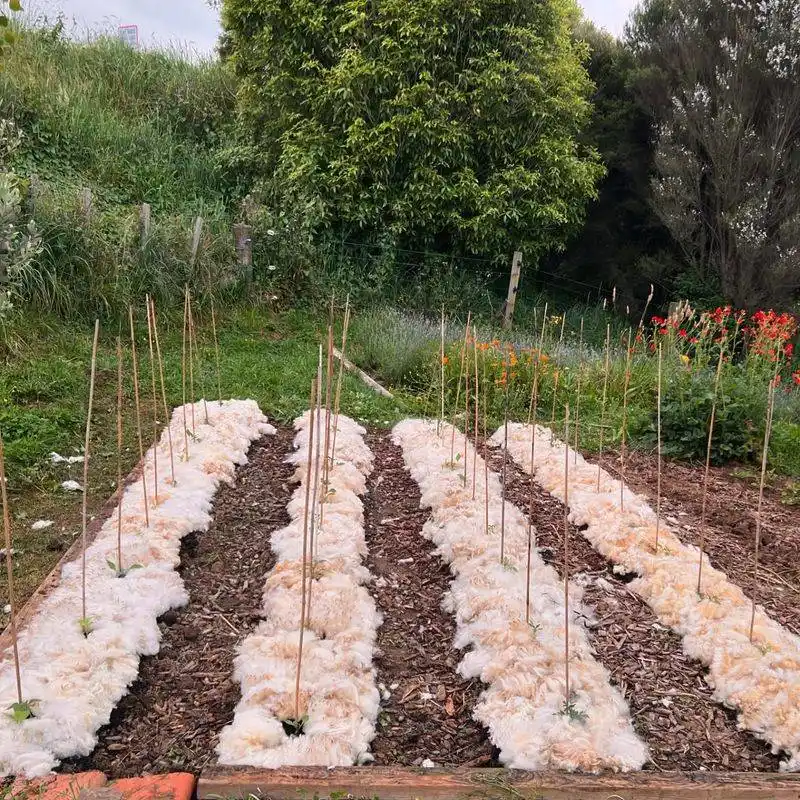
Mulch serves as a formidable barrier against those pesky weeds. Spreading organic mulch over your garden beds not only improves soil fertility but also blocks sunlight, inhibiting weed growth. It’s a natural method to keep your garden looking immaculate. By maintaining a layer of mulch, you ensure weeds struggle to find their footing. Mulch also helps retain moisture, benefiting your plants. Plus, as it breaks down, it enriches the soil with nutrients. With mulch, your garden thrives while weeds wither away.
Landscape Fabric
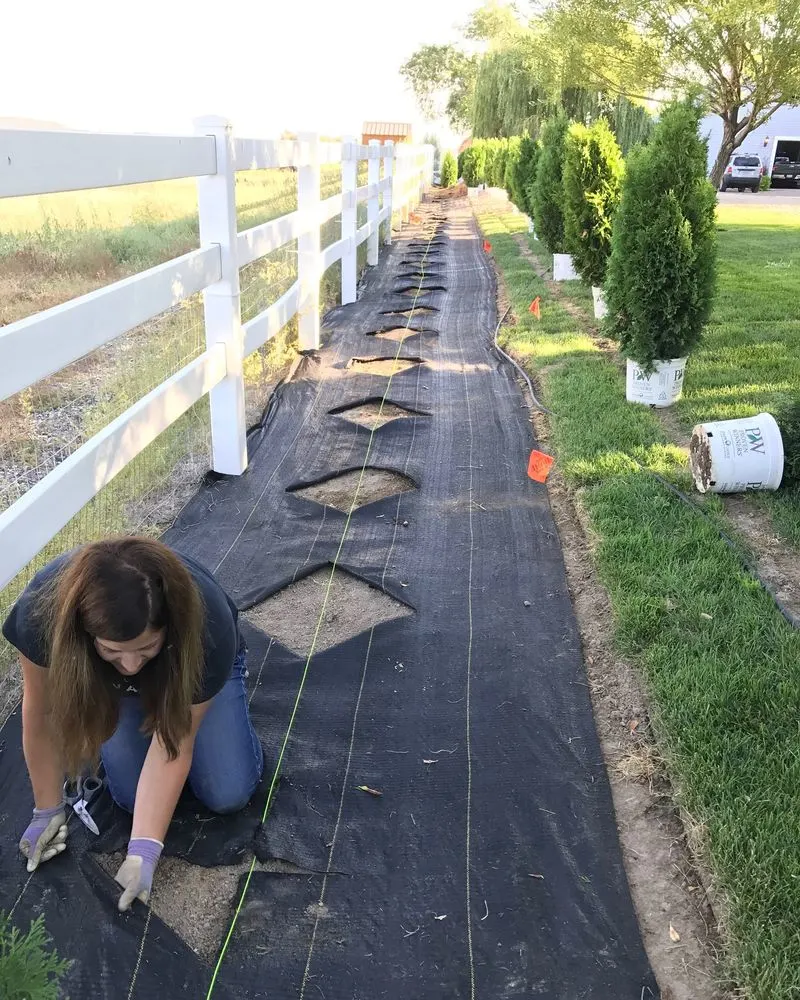
Laying down landscape fabric is like rolling out a welcome mat for your plants while turning away weeds. This method acts as a shield, preventing light from reaching the soil and stopping unwanted growth. It’s simple to install and can be topped with mulch or stones for a polished look. This durable barrier ensures that weeds have no chance to sprout. Whether you’re starting a new garden bed or revamping an old one, landscape fabric provides long-term relief from unwanted guests.
Vinegar Spray
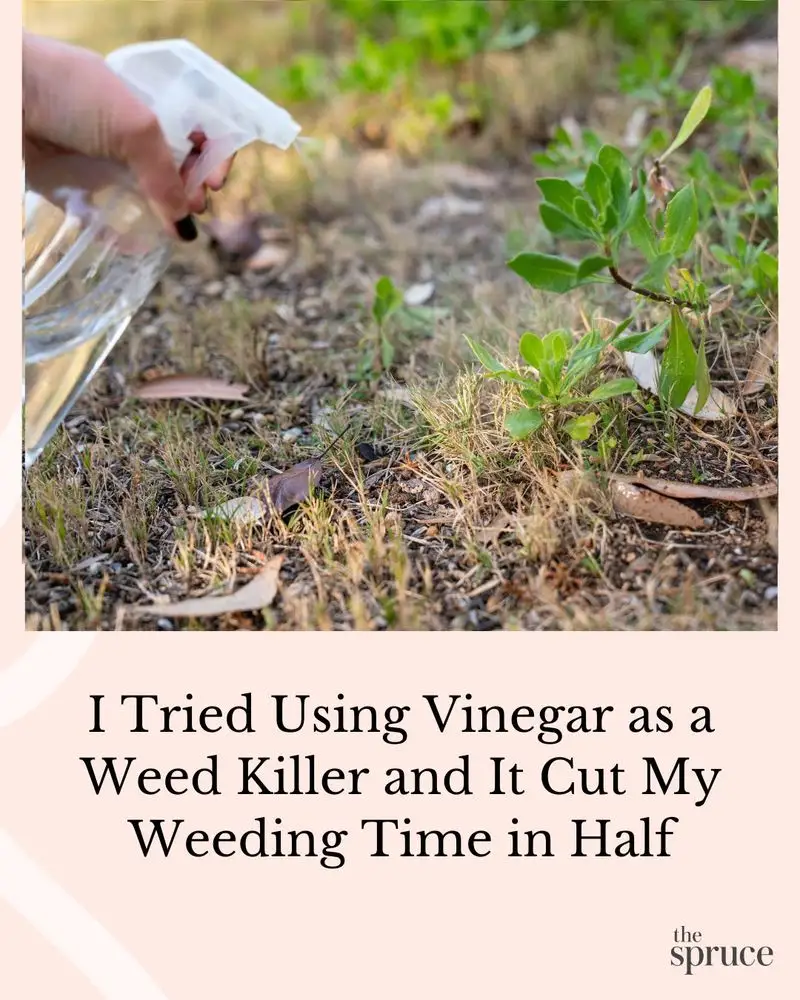
Vinegar is more than just a kitchen staple; it’s a secret weapon in the garden. When sprayed directly on weeds, vinegar’s acetic acid content acts as a desiccant, causing them to dry out and perish. It’s an eco-friendly solution that’s safe for the environment and your plants when used carefully. For best results, apply on a sunny day, directly onto the foliage. Avoid contact with desired plants as it can damage them as well. Regular application can keep those troublesome weeds at bay.
Boiling Water
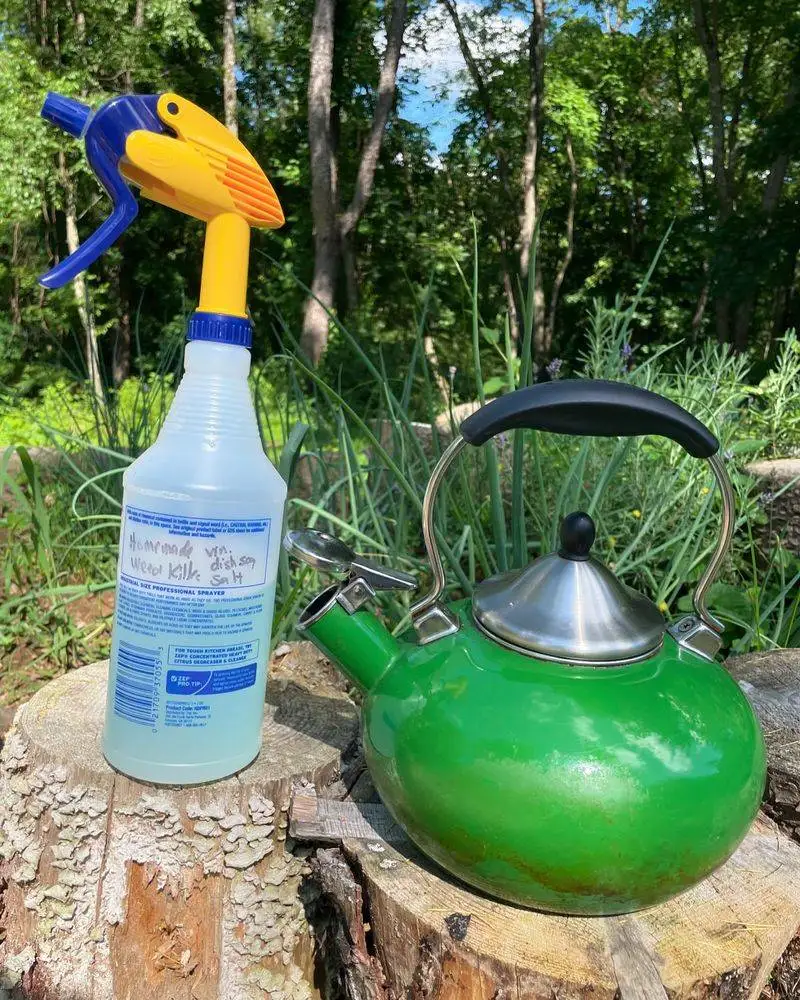
Boiling water is a straightforward and effective method to combat weeds. The intense heat destroys the plant cells on contact, causing the weeds to wilt and die. Ideal for cracks in pavements or pathways, it’s a natural solution requiring just a kettle or pot. This method is immediate and leaves no harmful residues. Care should be taken to avoid nearby plants you wish to keep. With boiling water, you target only the weeds, leaving your garden healthier and more vibrant.
Corn Gluten Meal
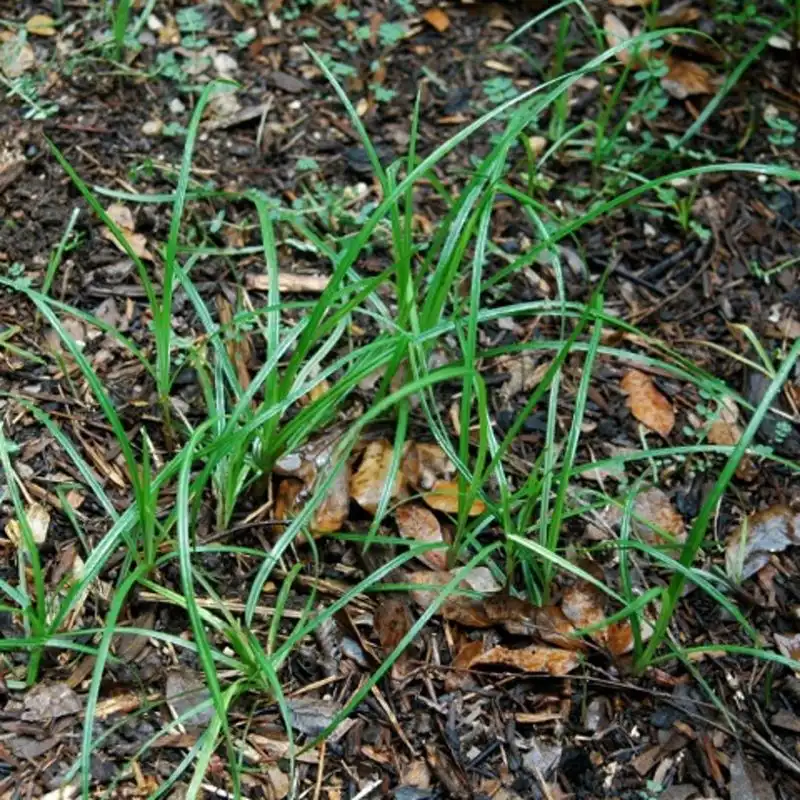
In the fight against weeds, corn gluten meal is a surprising ally. This byproduct of corn processing inhibits root formation in seedlings, effectively preventing weeds from growing. It’s a natural pre-emergent herbicide that also adds nitrogen to the soil, benefiting your garden. Spreading corn gluten meal is especially useful in early spring before weed seeds germinate. Regular application ensures the ground remains inhospitable to pests. Your garden stays flourishing while weeds are kept at bay.
Salt Solution
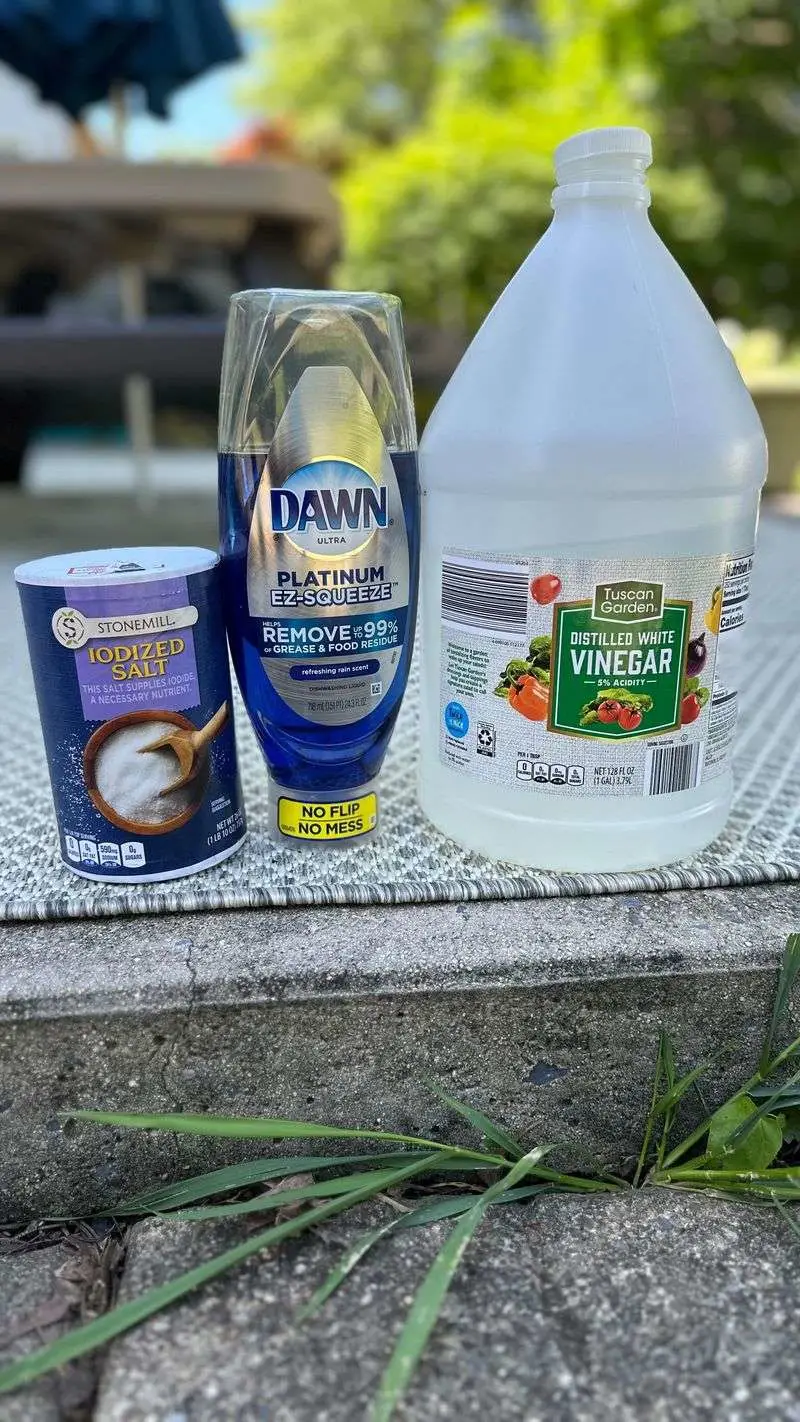
Salt, when used wisely, can deter weeds from taking over your garden. A saltwater solution, applied directly to the foliage, dehydrates the plants, causing them to die. This method is best for areas like driveways or paths where no other plants are growing. Care must be taken to avoid soil contamination, which can affect desirable plants. With precise application, salt becomes a powerful tool in your weed-fighting arsenal, maintaining clear and neat spaces in your garden.
Newspaper Layers
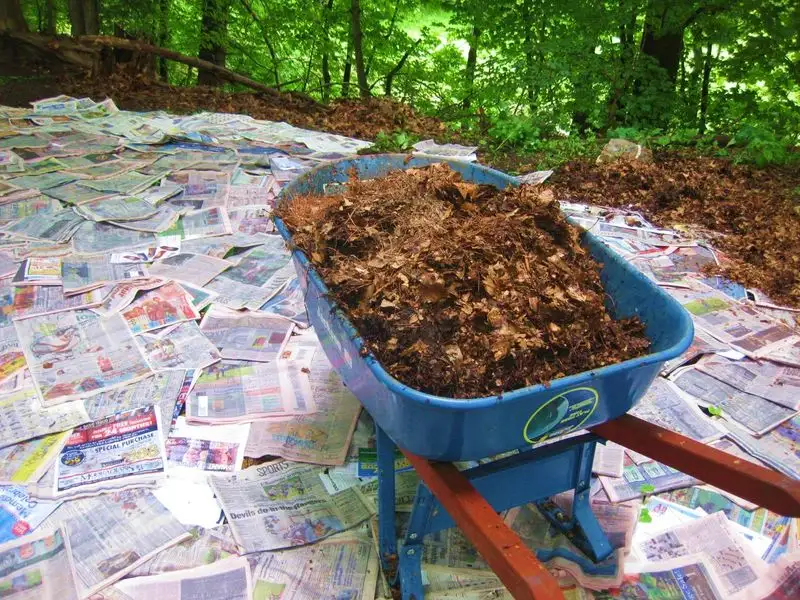
Old newspapers can be repurposed as an effective weed barrier. By laying thick layers across your garden, you block sunlight, suffocating weed seeds beneath. As an added benefit, newspapers decompose over time, enriching the soil. Cover with mulch or soil for aesthetics and additional weight. This budget-friendly approach not only recycles but also creates an unfriendly environment for weeds. It’s a win-win, saving money and effort while enhancing your garden’s appearance and health.
Ground Covers
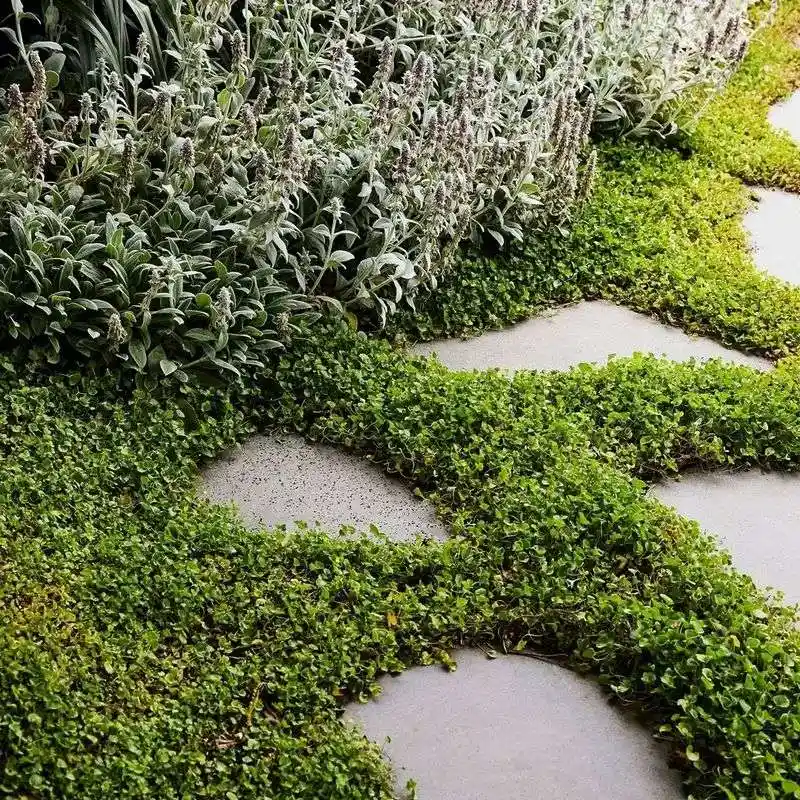
Ground cover plants are nature’s carpet, smothering weeds with their dense foliage. By selecting varieties that thrive in your climate, you create a living barrier against weeds. These plants compete for resources, leaving little room for unwanted growth. Ground covers are not only functional but also add aesthetic value, with options for flowers and foliage. They require minimal maintenance and keep your garden weed-free with ease. Embrace the natural elegance of ground covers for a pristine landscape.
Herbicide-Free Lawns
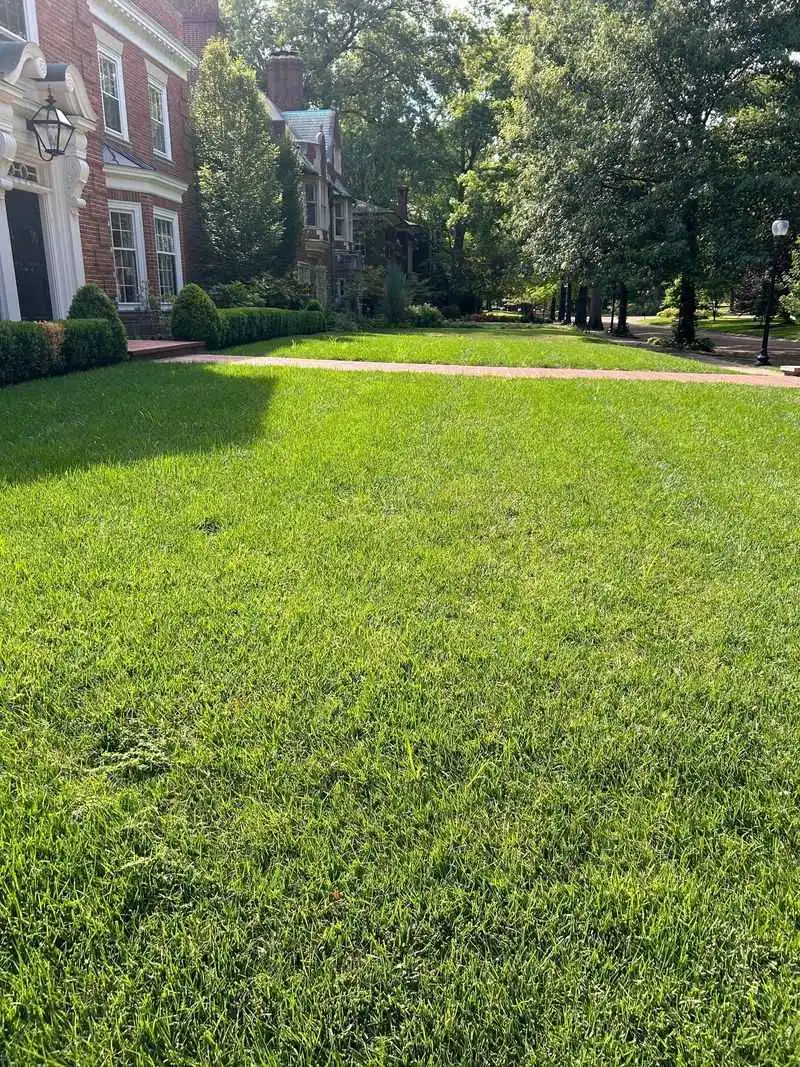
A thick, healthy lawn is your first line of defense against weeds. By maintaining dense grass, you reduce the space available for weeds to take root. Regular mowing, aeration, and proper fertilization are key to achieving this. Overseed bare patches to prevent weeds from finding a foothold. A lawn free of herbicides not only supports the ecosystem but also provides a safe play area. Investing in a robust lawn strategy keeps weeds at bay while promoting a vibrant outdoor space.
Cocoa Hulls Mulch
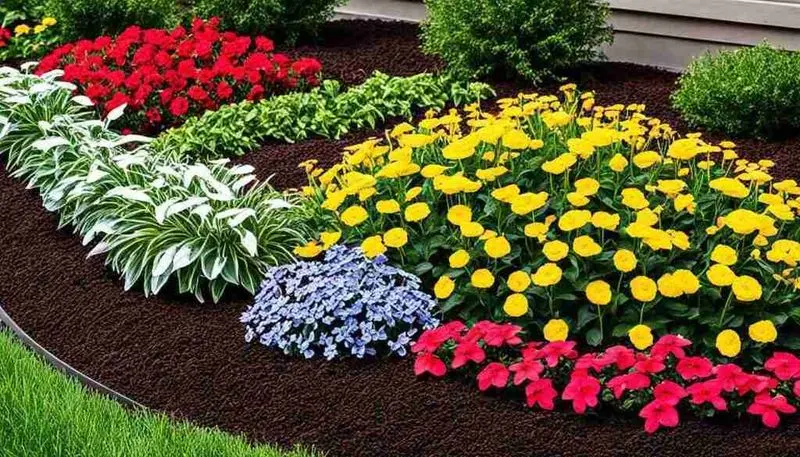
Cocoa hulls offer a luxurious touch to your garden while thwarting weeds. This mulch is not only beautiful with its rich, dark hue, but it also releases a chocolate aroma as it breaks down. Cocoa hulls form a barrier, blocking sunlight and preventing weed growth. It’s an eco-friendly choice, rich in nutrients that nourish the soil. However, keep pets away as it can be harmful if ingested. With cocoa hulls, your garden becomes both a sensory delight and a weed-free zone.
Plastic Sheeting
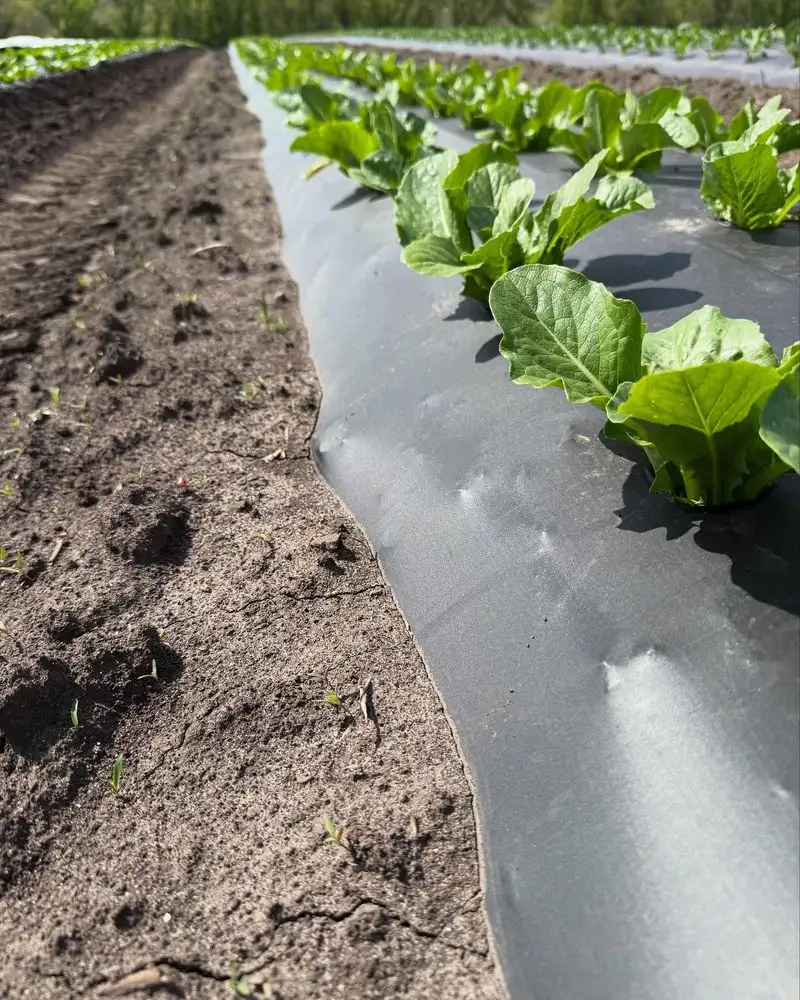
Plastic sheeting is a powerful tool for preventing weeds, especially in larger areas. By blocking light and trapping heat, it effectively suppresses weed growth beneath it. This method is ideal for preparing new garden spaces or protecting established beds. Secure the edges to prevent wind from displacing them. While it’s less visually appealing, covering with mulch can improve aesthetics. Plastic sheeting offers a straightforward solution to maintaining a tidy garden without the intrusion of weeds.
Companion Planting
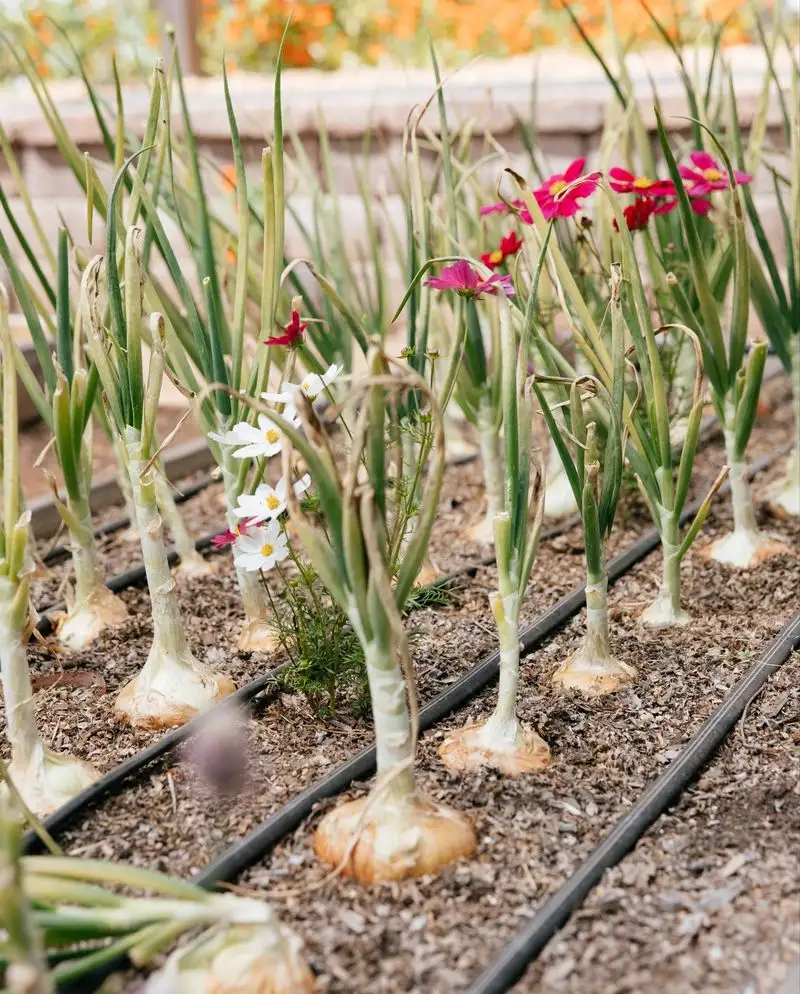
Companion planting is a strategic approach to gardening, using plant relationships to naturally deter weeds. By pairing plants with complementary growth habits and root systems, you create a dynamic garden ecosystem. Some plants release natural herbicides from their roots, inhibiting weed growth nearby. This symbiotic planting not only reduces weeds but also boosts crop yields and deters pests. Clever combinations, like marigolds with vegetables, enhance both beauty and productivity. It’s a holistic way to cultivate a healthy, weed-free garden.
Solarization Technique
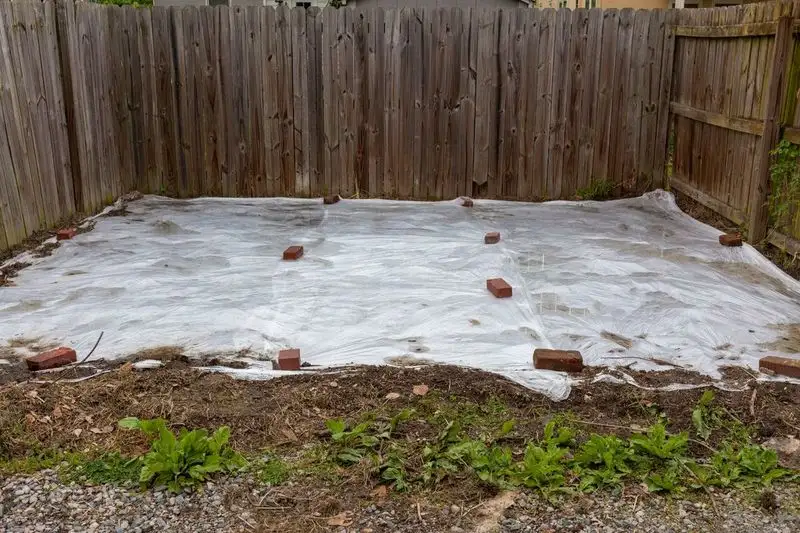
Harnessing the sun’s power, solarization is a chemical-free way to eradicate weeds. By covering soil with clear plastic, you trap heat and moisture, creating conditions that kill weeds and soil-borne pathogens. It’s an effective method during sunny, hot periods. The process not only clears weeds but also improves soil health by breaking down organic material. This eco-friendly technique requires patience but results in a weed-free, fertile garden ready for planting. Solarization is a sustainable choice for long-term garden health.
Crushed Stone Paths
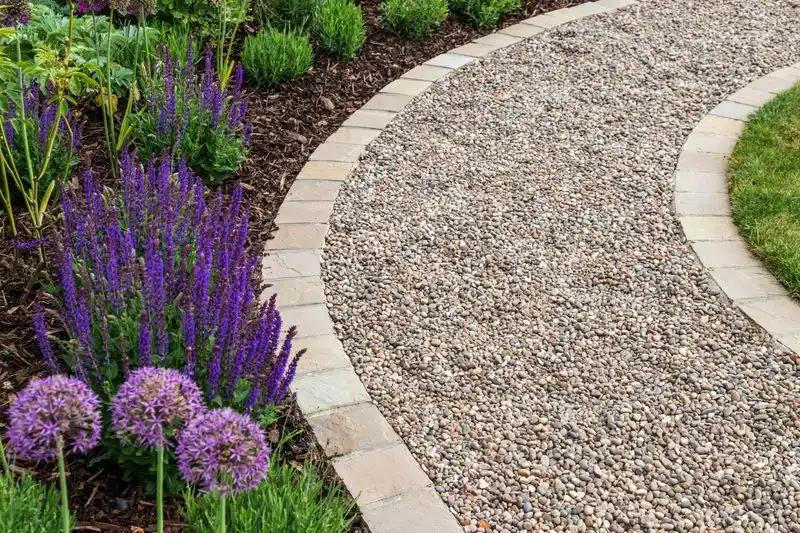
Crushed stone pathways are both practical and appealing, serving as a natural deterrent to weeds. The stones create a tough, inhospitable surface for weeds to penetrate. Ideal for garden paths and borders, they provide a neat, well-maintained appearance. This low-maintenance solution reduces the risk of weed infestations and requires minimal upkeep. By adding a landscape fabric layer beneath, you further enhance weed control. Crushed stones offer durability and elegance to any garden, ensuring weed-free walkways.
Wood Chips
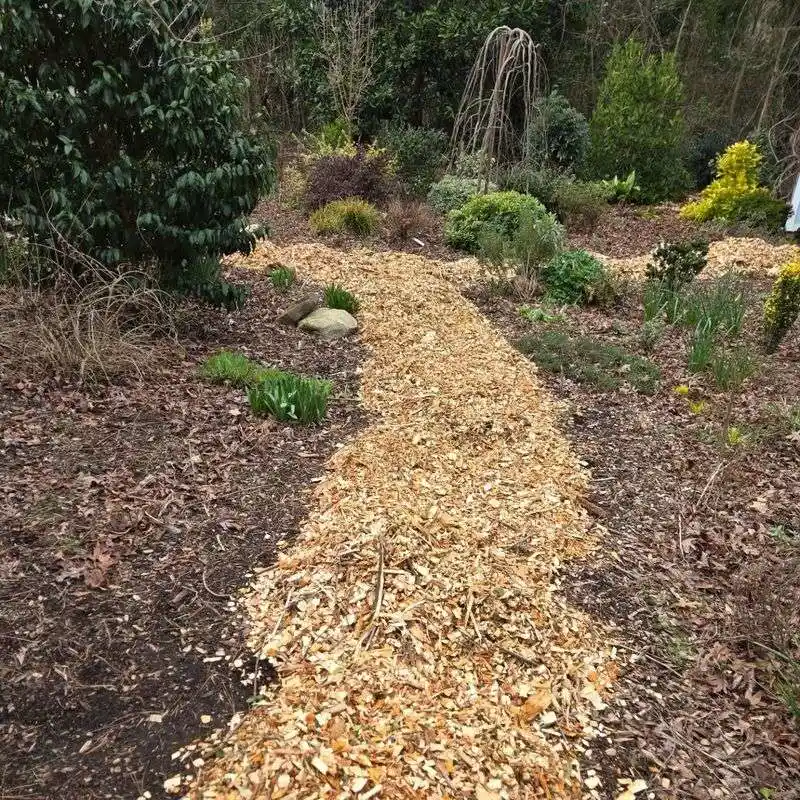
Wood chips add more than just aesthetic charm to your garden; they form a protective barrier against weeds. By spreading a thick layer, you minimize sunlight reaching the soil, suppressing weed growth. Wood chips decompose slowly, enriching the soil over time. They come in various types and colors, allowing for creative landscaping. This organic mulch is perfect for garden beds and borders, providing both beauty and function. With wood chips, your garden gains a rustic, well-tended appearance.
Raised Garden Beds
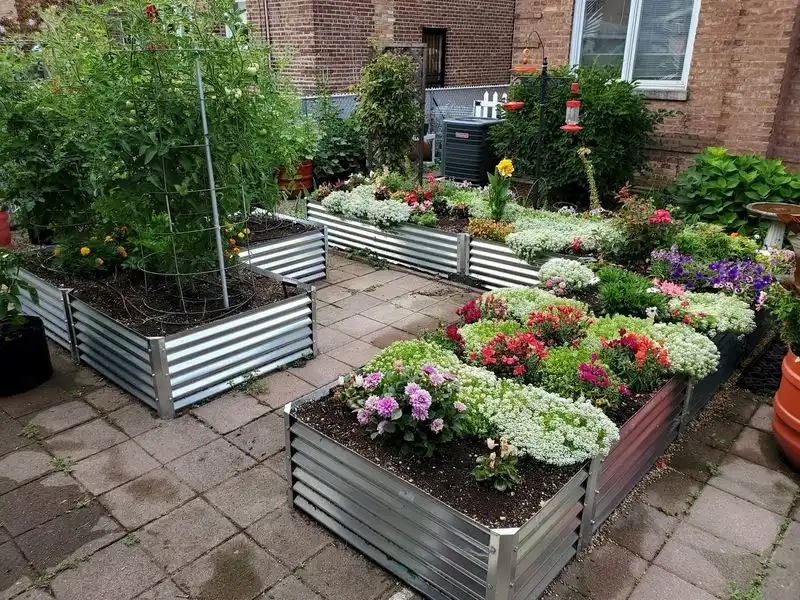
Raised garden beds offer a controlled environment where weeds find it hard to thrive. By elevating your garden, you define the space and make it easier to manage soil quality. These beds warm up quicker in spring, giving your plants a head start over weeds. The contained area also allows for targeted weeding and soil amendments. Whether you build from wood or recycled materials, raised beds provide a neat, organized look. Enjoy easier gardening with less bending and fewer weeds.

